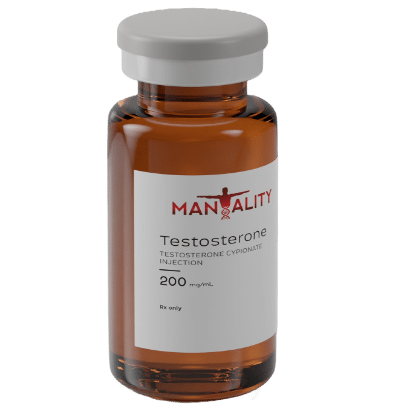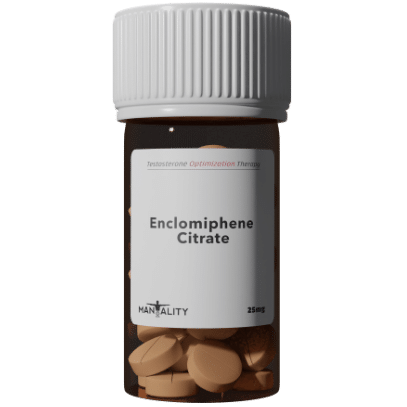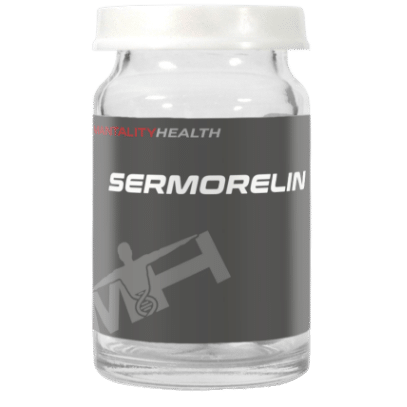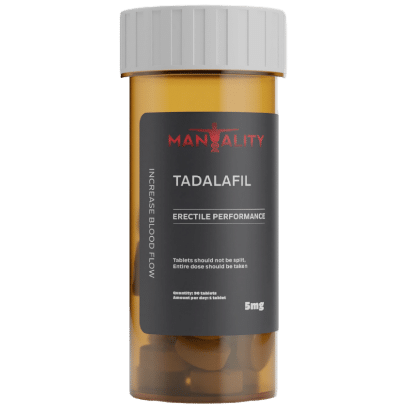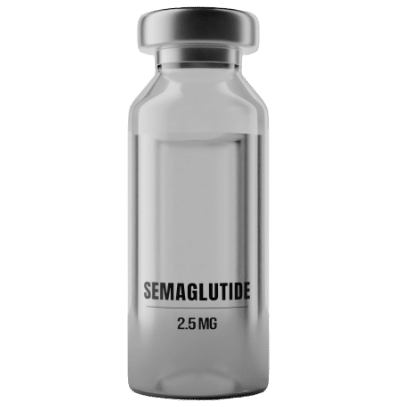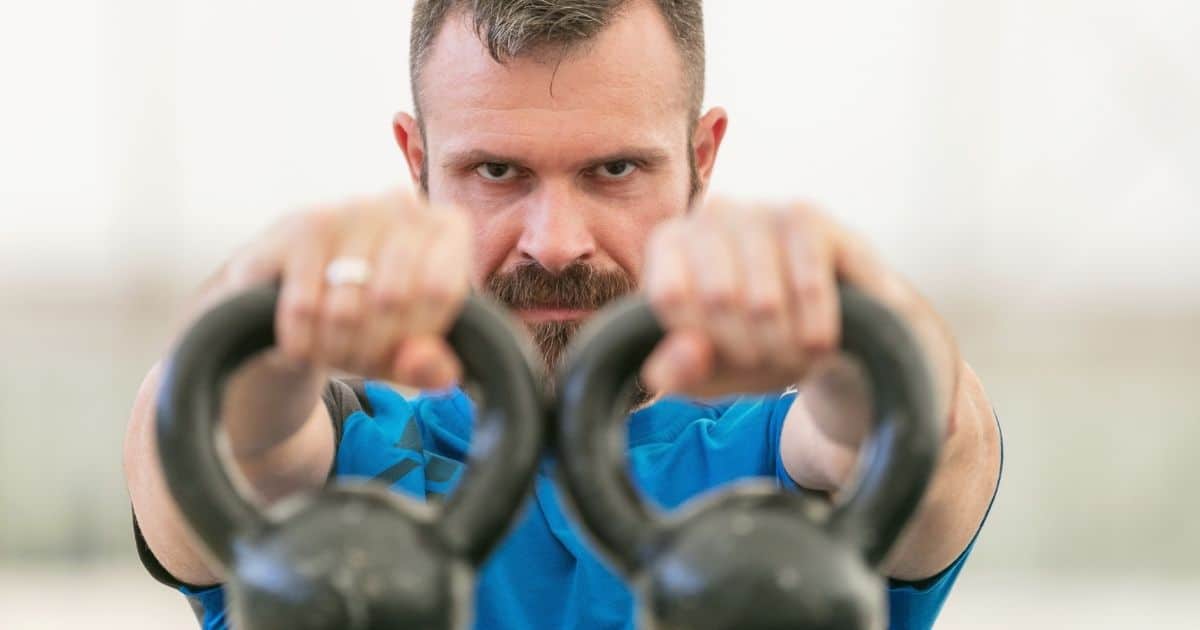Low testosterone can make you feel like less of a man. And if you suffer from it long enough, it can make you look or feel less masculine, too. This can happen in the mirror, at the gym, or in the bedroom.
But it doesn’t need to be that way.
Testosterone is a crucial hormone for men (and in smaller doses, women) that serves a ton of purposes throughout the body. There are many side effects of low testosterone. Whether your goal is to add muscle, feel more energy, or be able to “perform” in other places like the bedroom, you’ll be best served with optimal T levels coursing through your body.
What you need to know is how testosterone affects muscle mass. There are options for men to increase their testosterone, no matter their age or health history. In this article, we’ll look at how testosterone affects muscle mass and the ways you can combat losing muscle with testosterone replacement therapy.
What Is Testosterone?
Testosterone is a vital hormone for men. Produced in your testes and in constant contact with your pituitary gland and hypothalamus, it rises in production during the early years of puberty and peaks in the late teens/the early twenties.
After the age of thirty, it is natural to see a decrease in testosterone. Many men will let the steady decline go, deciding that their best days are behind them. For some men, however, they will consider low-testosterone replacement therapy which can reduce or even reverse the effects of low T in middle-aged men.
Testosterone has an effect on the body in many ways. Here are some of the things this hormone does for you.
Sperm Production
Male reproduction is largely the result of healthy levels of testosterone in the body. From body hair to proper function of sexual organs, a healthy amount of testosterone is necessary for men to be fertile.
Without optimal levels of this hormone, you are less likely to be able to reproduce.
Sex Drive
Not only is testosterone responsible for the purpose behind sex, but for men’s desire to have it too. Your libido is largely a function of your testosterone levels. You are less likely to desire sex if your T levels are not in an optimal range, and performance is likely to dwindle as well.
Body Hair
The hormone is responsible for back, chest, armpit and beard growth. Many men start losing hair as they age, and this is directly related to their declining levels of testosterone in the body.
If you find yourself losing hair or are discovering bald patches, this could be the result of your T levels declining.
Fat Metabolism
Besides a poor diet, one reason you see a lot of middle-aged men start to sag around the midline is that their body is no longer producing as much testosterone. Your T levels help you to burn off body-fat more efficiently, and as those numbers drop, it can be more difficult to lose weight as you get old.
Heart Health
Studies about heart health and testosterone are still in the early stages, but right now there are some links between heart health and this hormone.
It is thought that older men are less likely to suffer from chronic diseases like heart disease if they have higher levels of testosterone.
Increased Muscle Mass
Perhaps this is what brought you to this article. Yes, testosterone is largely responsible for men’s ability to add muscle mass to their frame. In fact, one of the reasons men tend to be more muscular naturally than women is due to our elevated—relatively speaking—levels of testosterone in the blood.
Even the most dedicated gym-goers will struggle to put on muscle if their testosterone levels are low. This is why many people ask questions about testosterone replacement therapy.
Keep in mind these are just some of the benefits of testosterone. Suffice it to say it’s an important hormone that keeps a lot of things in your body working the way it’s supposed to.
How Do You Add Muscle?
Perhaps your workout but don’t know the science behind how you add muscle in the first place.
Muscle growth, or muscular hypertrophy, is the phrase we use to describe muscles that grow in size and strength. There are two essential components of hypertrophy: stimulation: stimulation and repair.
Stimulation is synonymous with what you do when you go to the gym. You must stimulate your muscles to grow by overtaxing them with weights, reps, or sets of strength training exercises. When you do, your muscles send a signal to your brain saying that they currently cannot handle the stresses you are placing on them.
In turn, your brain sends a signal to your muscles and the rest of your body to increase the size and strength of your muscle fibers. This is where the ‘repair’ part comes in. For the same reason people advise you to take rest days from the gym, you cannot add muscle to your body without recovering from the stimulation—hard work—that you’ve done at the gym.
How Long Does It Take to Add Muscle?
You can see why this would take a long time. Each workout requires the length of the workout plus the time it takes to recover from the workout in order for you to gain lean muscle. And it doesn’t happen overnight—the best time to start exercising was yesterday, but now it’s today.
And that’s assuming your body is functioning at a high-level. If you are suffering from low testosterone, don’t sleep, and don’t eat the right foods, you might never add the lean muscle you’ve worked hard to get. If you train too much and don’t recover properly the same thing is true.
Ultimately, it comes down to the repetitive cycle of breaking down muscle fibers and letting them heal. But other factors play a big role in being able to put on lean muscle.
Can I Actually Lose Muscle?
Yes, unfortunately. This is called muscular atrophy (muscle wasting) and is common for people that don’t eat enough calories, have low levels of testosterone, or don’t exercise. Even if you’ve worked out for years, it’s entirely possible to lose lean muscle that you’ve worked hard to add if you aren’t active and functioning at a high level.
So if you’re in your mid-thirties and starting to notice the tone and definition in your arms disappearing, you might not be crazy. It could actually mean your muscles are shrinking. That is a tough pill to swallow if you’ve already put in a lot of work.
Will My Muscles Recover Faster?
One benefit to testosterone is that it actually helps your muscles recover faster. Because you now understand that recovery matters just as much as the actual workouts, you can see how testosterone would be beneficial in other ways to you growing muscles on your body.
When your muscles recover faster, you’re able to train for longer durations and at higher intensities during your weight lifting sessions. This has a snowballing effect on your ability to add more muscle—more workouts done at a higher intensity over time will make you bigger and stronger.
But that isn’t possible, or at least is very unlikely, if you suffer from low testosterone.
Can I Add Muscle With Low Testosterone?
Let’s say you go to the doctor and find out that you have low testosterone. You’re in your thirties or early forties and are hoping to reinvent your body and start going to the gym again. This news is particularly devastating because you know that low t means it’s going to be difficult to put on muscle mass.
But is it possible?
You do have some options if you have low testosterone to add muscle mass to your frame. Losing weight, incorporating aerobic exercise like running, sleeping enough, and eating healthy can all help to naturally elevate your body’s testosterone levels.
But no matter what, getting older means losing the levels you once had. Naturally, you’ll find it more difficult to add lean muscle from workouts and/or train at the level necessary to add muscle as often.
What Else Might Happen?
Other symptoms of low testosterone mean reduced energy, sex drive, and hair loss. You might also be more depressed, get poor sleep, and gain weight.
You might find it more difficult to exercise consistently, be motivated to exercise or have the energy to train at the high intensity required to add muscle to your body.
How Could I Benefit From Hormone Replacement Therapy?
Hormone replacement therapy is a popular option for people suffering from low T. It can help reduce or reverse the effects of hypogonadism (low testosterone). Many people report feeling younger and more vigorous when using HRT, and some studies have even found that testosterone replacement therapy increased muscle mass for people.
As you know now, there are plenty of side effects to having low testosterone. By supplementing with
What Are The Goals of Testosterone Replacement Therapy?
The goal of testosterone replacement therapy is to help increase your body’s testosterone levels so you don’t suffer from the negative side-effects of low T. In the long-term, the goal is to return you to where you once were so you can improve your quality of life in all areas.
How? Well, for one, by using our service. But two, we like to help you recall a time when you performed at your best. When you were goal-oriented and felt like you had an “edge’ on life. Life in your twenties and early thirties when you felt at your best.
If you can recall those times—and want to return to them—your goals might line up with the goals of testosterone replacement therapy.
Are There Risks Of Testosterone Replacement Therapy?
Taking synthetic testosterone could result in minor disturbances like issues with sleeping and acne. In any case, it’s important to talk to your doctor before beginning any type of treatment so that he can give you an accurate idea if it’s a good idea for you to use testosterone replacement therapy.
One benefit to our products and services is that they are designed with the proper FDA-required doses in mind to ensure that you are unlikely to experience negative outcomes. The right dose will give you the benefits you’re looking for without causing any unwanted side-effects.
Muscle Mass and Testosterone: Wrapping Up
Adding muscle mass and having optimal levels of testosterone are interlinked. With low T, you run the risk of being overweight, feeling low energy and libido, and not ever looking for feeling your best. And unfortunately, each man is going to deal with this as they get older.
If your goal is to add muscle to your frame, it would benefit you to have the right level of testosterone flowing through your body. Not only is it difficult to add muscle to your body without it, but it’s also actually possible for you to lose muscle from having low T and poor health choices.
Luckily, there are options available for people that want to take back their health no matter how old they are. You can use synthetic testosterone to counter hypogonadism (low T). And our products are designed to give you the optimal doses you won’t suffer any of the negative side effects of too much testosterone.
Contact Mantality for questions about our testosterone replacement therapy so you can start building muscle today.

